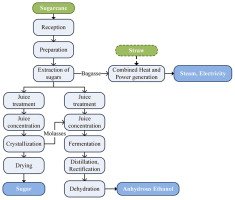SAO PAULO/NEW YORK, March 14 (Reuters) – A handful of mills resumed sugarcane crushing in Brazil’s centre-south (CS) region after several weeks off,seeking to produce ethanol and profit from sky-high prices for the biofuel, data from industry group Unica showed on Monday.
Unica said that 159,000 tonnes of sugarcane were processed in the second half of February, 76% less than in the same time a year earlier, but the first crushing activity since late last year. There was no sugar production and all the processed cane was used to make ethanol.
Mills produced 129 million liters of ethanol in the period, 8% more than at this time last year.
Unica said sales of hydrous ethanol, the type that competes at pumps with gasoline, jumped 26% in February from January, but remained 28% behind levels seen in February 2021 as fuel demand fell in Brazil due to high prices.
Unica’s technical director Antonio de Padua Rodrigues said the increase in sales from January indicated a biofuel market recovery in Brazil.
Ethanol’s appeal to car owners is growing in the country, as gasoline prices have hit all-time highs. Most cars in Brazil can run on either gasoline or ethanol due to flexible engines, with drivers picking the most economical one at the pump.
Brazil’s oil company Petrobras increased gasoline prices by nearly 19% last week tracking higher global energy prices.
Higher ethanol sales in Brazil could reduce sugar production as mills allocate sugarcane to one or another depending on market prices.
Brazil’s new sugarcane crop officially starts in April, but some mills jump ahead if they have cane ready for processing and if prices are favorable.
(Reporting by Roberto Samora and Marcelo Teixeira; Editing by Chizu Nomiyama and David Gregorio)
The views and opinions expressed herein are the views and opinions of the author and do not necessarily reflect those of Nasdaq, Inc.





